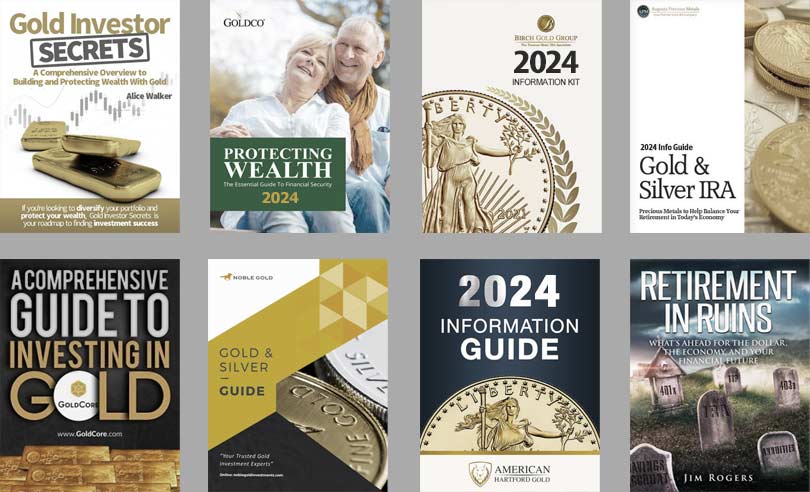Bitcoin – Could It Be Nothing More Than a Bit Player?
 Bullion.Directory precious metals analysis 27 August, 2016
Bullion.Directory precious metals analysis 27 August, 2016
By David Smith
Senior Analyst at The Morgan Report
 Starting out as a “virtual penny stock” it rose in 2014 to the elevated height of $1,150, before crashing back to earth. This “electronic currency” is created and stored in a computerized “wallet.” Purchases and sales are made via a “blockchain” which keeps a memory of every transaction conducted. Private keys (supposedly) provide assurance that a Bitcoin holder’s account is safe.
Starting out as a “virtual penny stock” it rose in 2014 to the elevated height of $1,150, before crashing back to earth. This “electronic currency” is created and stored in a computerized “wallet.” Purchases and sales are made via a “blockchain” which keeps a memory of every transaction conducted. Private keys (supposedly) provide assurance that a Bitcoin holder’s account is safe.
In less than three years, two seminal events have served to give bitcoin users financial heartburn. They give Inquiring Minds (readers of this column?) a serious reason to put on their thinking caps, before jumping to the conclusion that crypto-currencies can be viable challengers to what history teaches us is real money – gold and silver.
In February, 2014, the Tokyo-based bitcoin exchange, Mt. Gox, which at the time handled 70% of all bitcoin transactions, suspended trading and filed for bankruptcy after 850,000 bitcoins went missing. Then in early August 2016, 119,000 bitcoin worth $70 million were stolen from a Hong Kong exchange – one of the world’s largest.
These two events alone should fully justify safety concerns. More important than the theft itself was what the exchange decided to do about it. They decreed that account users who bore no responsibility for the loss, would still be subject to a 35% “bail-in” (exchange-approved theft) to make up for it.
Hackers Are Unleashing Sophisticated Malware to Rob Bitcoin Owners Blind
In what turned out to be prophetic comments, less than two years before the events discussed above, Nadeem Walayat, Editor of The Market Oracle, stated he believed that “thieves have been busy producing a whole host of bitcoin wallet malware that seeks to steal any wallets that they find on infected computers.”
As new bitcoins are “mined” and the blockchain becomes more complex to operate, Walayat warned:
“…what bitcoin holders are going to be increasingly exposed to, is ever more sophisticated malware that are aimed at the theft of their bitcoin holdings at every stage of the process, starting right from their internet connected desktop PC’s to the interception of transactions between servers to the wild west bitcoin exchanges that can disappear with all of their customers bitcoin holdings overnight, to the highly sophisticated bot net infected mining pools that seek to target all bitcoins in existence by seeking to rewrite who owns what.”
Yet crypto-currencies do have a few things going for them, and maybe someday they will find acceptance and utility among the general population. They offer a certain amount of financial privacy. Funds can be transferred to any point on the globe.
A few businesses already accept Bitcoin in payment (including Money Metals Exchange). Their volatility means that holders have upside potential – BT recently traded as high as $788 (currently trading at $575.)
But are these benefits enough if you wake up some morning to find out that the site who you’ve entrusted with your BT has been hacked (robbed) and you’re informed that you’re going to be “bailed-in” to help restore the funds of other site holders?
Cash in the Bank Could Actually Be Safer Than Bitcoin
If this kind of risk appeals to you, why not just continue to keep all your liquid assets in bank CDs, non-interest bearing savings accounts, or money market funds?
Soon enough you’ll have to pay them to hold your money via negative interest rates (NIRP). You’ll have new fees added to your non-interest-bearing accounts, and “redemption gates” – limitations on how much of your own money you can withdraw.
It brings to mind the exchange between two peasants, in the classic film The Magnificent Seven. They were discussing whether or not they should resist the continued thievery of the Mexican bandit Calvera and his gang, or just put up with their periodic depredations. “But they never steal all our corn!” responded one campesino who voted not to resist.
Eventually if/when your bank gets into trouble – even through no fault of your own, you may be “volunteered” to give up 20-30% of your account in a “bail in” to help cover their mismanagement.
 A few years ago, a Spanish bank took it a step further – forcing account holders to convert their cash to the bank’s stock… which promptly lost 90% of its value!
A few years ago, a Spanish bank took it a step further – forcing account holders to convert their cash to the bank’s stock… which promptly lost 90% of its value!
This fall, regulatory agencies will no longer require money market funds to promise that your shares will drop no lower than $1. In the past, his sacrosanct rule served as a guarantee that you could never lose your principal.
Now, that can change at any time, allowing the net asset value of the fund to close below $1 and stay there – in the trade called “breaking the buck.” Thus, on any business day of the week, you may lose some of your money market funds on deposit.
In 2010, the SEC voted 4-1 to authorize the ‘legal’ suspension of money market redemptions. They wrote “We understand that suspending redemptions may impose hardships on investors who rely on their ability to redeem shares.” Translation: You are in their thoughts and prayers, but they can still decide to prohibit withdrawals from your own account.
As the checkered history of upstart “money substitutes” like Bitcoin has shown, those who have control over the disposition of funds of any second party will sooner or later find a way to debase (steal) some if not all of it from the person who thinks he/she “owns” it.
Over two years ago, David Morgan wrote the following in an article titled “My Two Bits about Bitcoin,” which you can read on his blog here:
Looking at what has taken place, especially over the last year or so, I must conclude with this simple – and to my thinking – self-evident statement. Whereas Bitcoins can vanish, Gold cannot. Just remember for all who read this, the timeless advice of – caveat emptor! And may the Free Market Reign.
It’s likely Bitcoin will go through more “jury trials” – efforts at sustaining public acceptance – before it is either fully approved of, or tossed into history’s waste bin.
But while we wait to find out, I’d say that, in some very important ways compared to gold, Bitcoin has so far proven itself to be nothing more than a two-bit interloper.
Bullion.Directory or anyone involved with Bullion.Directory will not accept any liability for loss or damage as a result of reliance on the information including data, quotes, charts and buy/sell signals contained within this website. Please be fully informed regarding the risks and costs associated with trading in precious metals. Bullion.Directory advises you to always consult with a qualified and registered specialist advisor before investing in precious metals.












Leave a Reply